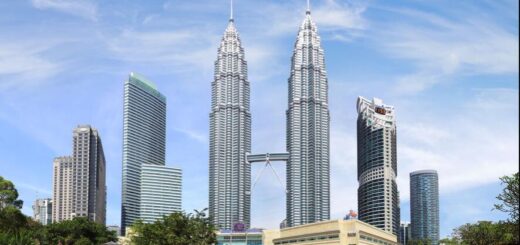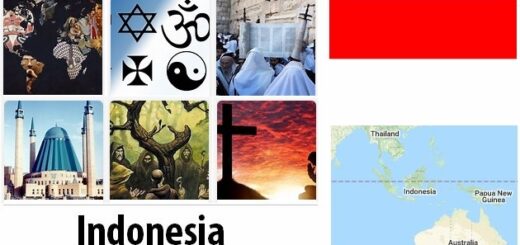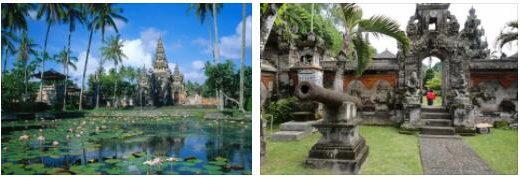Shopping and Living in Indonesia
Shopping Overview
The following articles can be imported into Indonesia duty-free by people aged 18 and over:
200 cigarettes or 50 cigars or 200 grams of tobacco;
1 liter of alcoholic beverages;
Perfume for personal use;
Gifts up to a value of US $ 250 per passenger or US $ 1,000 per family.
Mobile phones, laptops, video cameras, radios, binoculars and sports equipment must be declared upon entry and exported again upon departure. Films, audio and video cassettes, CDs and computer software must be submitted to the censors for review. Possession of even a small amount of drugs is punishable by long prison sentences, and drug trafficking is punishable by death.
Prohibited imports
Cordless phones, portable televisions, fax machines and other merchandise, fresh fruit and animal, fish and vegetable products, weapons, ammunition, pornographic products, narcotics, non-medical prescription drugs, Chinese publications and medicines.
SHOP
Overview
Popular souvenirs include handicrafts such as batik fabrics, wood carvings, silver jewelry, straw and raffia baskets, bamboo items, crisis (small daggers), paintings and woven fabrics. When buying antiques, you should seek advice from an expert. Bargain hunters are particularly drawn to the island of Java. The city of Yogyakarta is known for its batik fabrics and pictures, but the quality of the batik should be checked with a water test.
On Bali you can find high-quality natural cosmetics such as massage oils, body lotions and peelings. Ubud is known as an artist village. In Celuk, numerous silversmiths offer their services in the small side streets, and individual orders are also possible. Jenggala ceramics (Internet: www.jenggala.com) in Jimbaran combines Balinese tradition with modern design.
In the big cities there are large, air-conditioned shopping centers in which internationally known labels are offered at relatively low prices. The Plaza Senayan (Internet: www.plaza-senayan.com) in South Jakarta or the BeachWalk Mall (Internet: www.beachwalkbali.com) in Kuta on Bali are well known.
There are numerous markets where, in addition to fresh fruit and vegetables or exotic spices, textile goods are also offered. The Tanah Aban market in central Jakarta, which has been taking place since 1735, is one of the largest textile markets in Southeast Asia according to estatelearning, .
Opening hours
Mon-Sun 9 a.m.-9 p.m., some shops close earlier on Sundays. Markets are open either early in the morning or late in the evening. In the smaller towns, shops close at lunchtime from 1 p.m. to 5 p.m. Shopping centers are usually open from 10 a.m. to 9 p.m.
NIGHTLIFE
Introduction
In the discos, nightclubs and bars you will mainly find tourists. The capital Jakarta and the island of Bali have the liveliest nightlife. Both Jakarta and Bali have branches of the legendary Hard Rock Café (Internet: www.hardrock.com).
International singers and groups often play in Jakarta’s nightspots; the night clubs are open until 4am on weekends. The city has over 40 cinemas, some of which show films in English or with English subtitles.
In Bali there are discos, nightclubs and bars in all the larger towns, and they often have live music. The town of Kuta in the south of the island is particularly popular with party-goers and has a particularly diverse range of offers; For example, those who like to dance salsa go to Cubana (Internet: www.cubanabali.com) or Bahiana (Internet: www.bahiana-bali.com). Friends of house music, however, are drawn to the Bosche (Internet: www.boshevvipclub.com).
Many larger hotels, especially in Bali, offer dance performances, accompanied by the typical Indonesian gamelan orchestras. Moonlight festivals take place in many places throughout the year, it is best to inquire on the spot. Indonesian shadow theater is world famous.
Beware of gangs who try to steal their money from tourists. Since gambling is prohibited in all of Indonesia, the injured party is also liable to prosecution.
ACCOMMODATION
Hotels
There are international hotels in all major cities and tourist centers, and most of them also offer a conference service. Hotel taxes are high (10% service and 11% tax). In many tourist areas, e.g. B. in Bali, from hotels of the international luxury class to beach huts, almost every type of accommodation is available. Mid-range hotels also often have swimming pools and lend the most popular sports equipment.
Categories: Hotels are classified according to the facilities they have. For more information, please contact the National Hotel Association, Wisma Nugra Santana, 4th Floor, Jendral Sudirman 8, ID-Jakarta 10220. (Tel: (021) 570 69 09).



